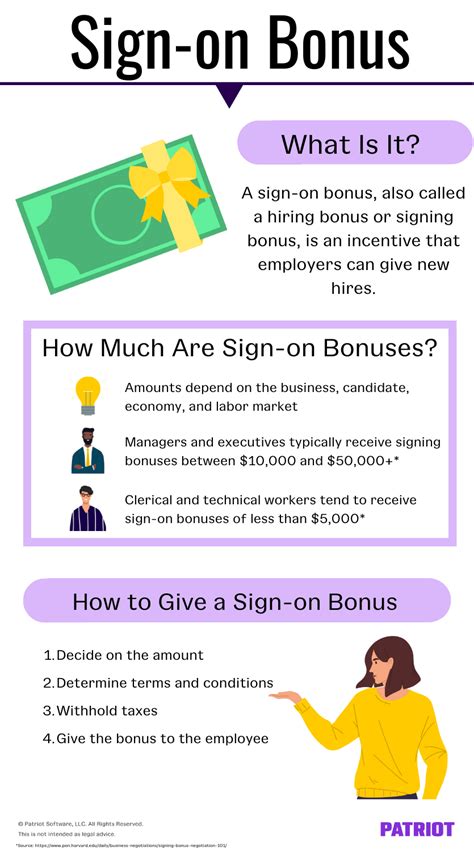Average Signing Bonus: Gauging Financial Incentives

When it comes to landing a new job, many job seekers are interested in finding out what kind of signing bonus they can expect. A signing bonus is a financial incentive that employers offer to new employees to entice them to accept a job offer. But how much is an average signing bonus? And what factors influence the size of a signing bonus? In this article, we’ll explore these questions and more.
What is a Signing Bonus?
A signing bonus is a sum of money that an employer pays to a new employee when they join the company. The bonus is usually offered as an incentive to accept a job offer and is typically paid out within the first few weeks of employment.
What is an Average Signing Bonus?
The average signing bonus varies depending on the industry, location, and level of the position. According to a survey conducted by WorldatWork, the average signing bonus for executive-level positions is $25,000, while the average signing bonus for non-executive positions is $10,000.
Factors that Affect the Size of a Signing Bonus
Several factors can influence the size of a signing bonus:
- Industry: Certain industries, such as finance and technology, tend to offer higher signing bonuses than others.
- Location: Employers in expensive cities like New York and San Francisco may offer larger signing bonuses to help offset the cost of living.
- Level of the position: Executive-level positions may come with a larger signing bonus than non-executive positions.
- Experience: Candidates with more experience or in-demand skills may be offered a higher signing bonus to entice them to accept the job offer.
Pros and Cons of Signing Bonuses
While the idea of a signing bonus may seem appealing, there are both pros and cons to consider:
Pros
- Attract Top Talent: A generous signing bonus can help employers attract top talent who may be considering other job offers.
- Increased Loyalty: Employees who receive a signing bonus may feel more loyal to their employer and less likely to leave in the near future.
- Immediate Financial Benefit: A signing bonus provides an immediate financial benefit to new employees, which can help ease the transition into a new job.
Cons
- Costly: Offering a signing bonus can be costly for employers, especially if they are trying to attract multiple candidates with similar skills.
- Misaligned Incentives: A signing bonus may incentivize employees to accept a job offer for the money, rather than for the fit or the long-term potential.
- Expectations: Employees who receive a signing bonus may have higher expectations for future compensation or may feel entitled to certain perks or benefits.
FAQs
What is the typical term for a signing bonus?
The typical term for a signing bonus is one year. If an employee leaves the company before one year of employment, they may be required to pay back a prorated portion of the signing bonus.
Are signing bonuses negotiable?
Yes, signing bonuses are often negotiable. Candidates who have competing job offers or in-demand skills may be able to negotiate a higher signing bonus.
Do all companies offer signing bonuses?
No, not all companies offer signing bonuses. It is more common in certain industries or for positions that are in high demand.
How is a signing bonus taxed?
Signing bonuses are typically taxed as regular income. However, some employers may choose to withhold a higher percentage of taxes from the bonus to account for the employee’s higher tax bracket.
Can a signing bonus be clawed back?
Yes, a signing bonus can be clawed back if the employee does not meet certain conditions, such as staying with the company for a minimum amount of time or meeting certain performance goals.
Conclusion
Signing bonuses can be a powerful tool for employers to attract top talent, but they come with both advantages and disadvantages. Understanding the factors that influence the size of a signing bonus and the potential pros and cons can help job seekers make informed decisions about their next career move.
